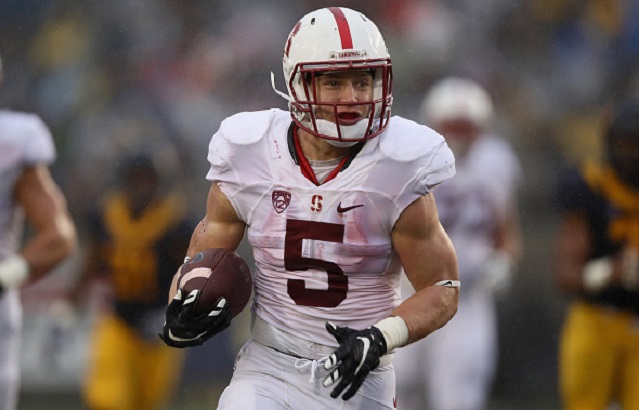Would a NFL developmental league put pressure on NCAA to begin paying college football players?
The NFL has had several forays into developmental leagues in the not too distant past: the World League, which later became NFL Europe, and the UFL. Neither of these were particularly profitable, nor did they funnel that much talent to the NFL.
However, the NFL apparently wants to give it another go, spurred on by a season in which a ratings decline was attributed to a great many things, one of the most prominent being a perceived diminishing quality of play. Why is the quality down? Again, there are many theories, and it’s entirely possible that the reality is an amalgam of smaller causes.
Those theories consist of things like less practice time allowed by the current collective bargaining agreement, fewer contact drills, and no two-a-days. Then there are those who attribute a lower quality of play to the league being generally younger than it has been in the past. Teams have eschewed more expensive veteran players in favor of less expensive and also less experienced youngsters.
Troy Vincent, the NFL’s head of football operations, said during the fall that he is preparing to make recommendations for the start of a developmental league, or possibly an in-season academy to pitch to the Competition Committee and the NFLPA. The in-season academy would run from final cuts in late August or early September and run until November, giving jobs and training to players, officials, and coaches. It would also give the NFL a chance to experiment with potential rule changes and technological advances.
If these even come to pass, that would be a fine start, though it’s hard to see that structure being a viable replacement for players coming directly out of high school. Which is unfortunate, because unless the NCAA is willing to consider paying players, there must be a replacement for it. This isn’t to say the NFL is any less despicable of an organization than the parent body of college sports, but at least it can offer an avenue for players to be paid for their services before turning 21 or 22.
All of this colors the current debate about whether college football players should skip the endless array of marginal, ultimately insignificant bowl games that function as nothing more than elaborate revenue generators for schools and the NCAA itself. Why should these players risk injury that could potentially cost them millions of dollars, for a school that is paying them nothing?
All these young guys deciding to skip their bowl games 🤔.I would do anything to play one more time with my brothers in that scarlet and gray
— Ezekiel Elliott (@EzekielElliott) December 19, 2016
The decision by Christian McCaffrey and Leonard Fournette to skip their respective bowl games in order to spare their bodies and prepare for the NFL Draft seems the logical springboard for more players to do that in the future. Naturally, there’s blowback within the college football community, which understandably sees this as a threat to the current model.
What’s more surprising is players currently in the NFL, such as Ezekiel Elliott, reinforcing notions of loyalty to programs in college football. It should also be noted that Elliott skipped his senior year to go pro.
Former Jets and Patriots lineman Damien Woody was one of the few who shot back at those messages, arguing there’s little sense in players looking out for anyone other than themselves.
Man I have to say….some of these former athletes have some really bad takes on this McCaffrey/Fournette decision. Evolve ppl…evolve!
— Damien Woody (@damienwoody) December 20, 2016
I think guys equate football too much towards the military & their principles. Football is entertainment….big business — Damien Woody (@damienwoody) December 20, 2016
That’s more than a reasonable stance to take as a player and one for which we as fans need to have more appreciation. Conventional fandom is tied to teams, though things like fantasy football have eroded that somewhat with younger viewers, at least on the NFL level. Whether it’s college or pro, fans need to appreciate that players are quite likely sacrificing years of their life for this sport and owe nothing to teams or fans that seldom ever show them loyalty in return. If that means missing one star player in a game which doesn’t really affect much in the standings, well, that’s not that much of a sacrifice to make.
It’s tempting to just wag the finger at the NCAA. The NFL is complicit in college football players being unpaid because the league is fine with the NCAA operating a de facto development league for the NFL. Perhaps the NFL creating its own developmental program would mean young players could not have another avenue for potential earnings while advancing themselves toward a career as a pro.
Whether that happens remains to be seen and it would likely be years for it to affect the existing structure, though it should be encouraged if only to put further pressure on the NCAA to pay players. In the meantime, fans should be more understanding of athletes’ choices, especially when it comes making the most of their limited window for earnings. It should have made sense even before we knew the full physical toll the sport takes on players, and applies doubly so now that we do.






